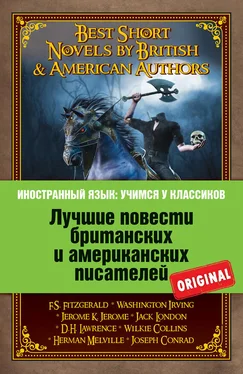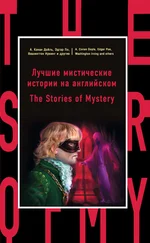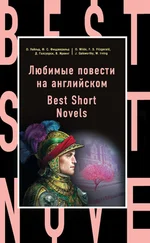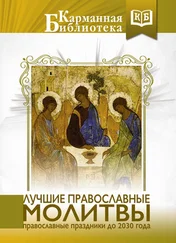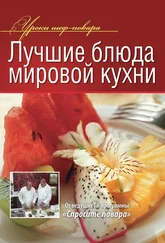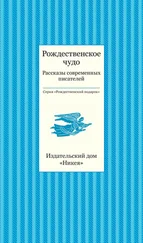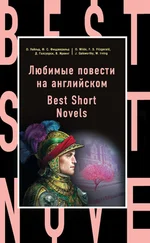Лучшие повести британских и американских писателей / Best Short Novels by British & American Authors
В оформлении обложки использована иллюстрация: FairytaleDesign / Istockphoto / Thinkstock / Gettyimages.ru
© ООО «Издательство «Эксмо», 2015
Wilkie Collins
Dream Woman
The First Narrative
Introductory Statement of the Facts by Percy Fairbank
‘Hullo, there! Hostler! Hullo-o-o!’
‘My dear! why don’t you look for the bell?’
‘I have looked – there is no bell.’
‘And nobody in the yard. How very extraordinary! Call again, dear.’
‘Hostler! Hullo, there! Hostler-r-r!’
My second call echoes through empty space, and rouses nobody – produces, in short, no visible result. I am at the end of my resources – I don’t know what to say or what to do next. Here I stand in the solitary inn yard of а strange town, with two horses to hold, and а lady to take care of. By way of adding to my responsibilities, it so happens that one of the horses is dead lame, and that the lady is my wife.
Who am I? – you will ask.
There is plenty of time to answer the question. Nothing happens; and nobody appears to receive us. Let me introduce myself and my wife.
I am Percy Fairbank – English gentleman – age (let us say) forty – no profession – moderate politics – middle height – fair complexion – easy character – plenty of money.
My wife is а French lady. She was Mademoiselle Clotilde Delorge – when I was first presented to her at her father’s house in France. I fell in love with her – I really don’t know why. It might have been because I was perfectly idle, and had nothing else to do at the time. Or it might have been because all my friends said she was the very last woman whom I ought to think of marrying. On the surface, I must own, there is nothing in common between Mrs. Fairbank and me. She is tall; she is dark; she is nervous, excitable, romantic; in all her opinions she proceeds to extremes. What could such а woman see in me? what could I see in her? I know no more than you do. In some mysterious manner we exactly suit each other. We have been man and wife for ten years, and our only regret is, that we have no children. I don’t know what you may think; I call that – upon the whole – а happy marriage.
So much for ourselves. The next question is – what has brought us into the inn yard? and why am I obliged to turn groom, and hold the horses?
We live for the most part in France – at the country house in which my wife and I first met. Occasionally, by way of variety, we pay visits to my friends in England. We are paying one of those visits now. Our host is an old college friend of mine, possessed of а fine estate in Somersetshire; and we have arrived at his house – called Farleigh Hall – toward the close of the hunting season.
On the day of which I am now writing – destined to be а memorable day in our calendar – the hounds meet at Farleigh Hall. Mrs. Fairbank and I are mounted on two of the best horses in my friend’s stables. We are quite unworthy of that distinction; for we know nothing and care nothing about hunting. On the other hand, we delight in riding, and we enjoy the breezy spring morning and the fair and fertile English landscape surrounding us on every side. While the hunt prospers, we follow the hunt. But when а check occurs – when time passes and patience is sorely tried; when the bewildered dogs run hither and thither, and strong language falls from the lips of exasperated sportsmen – we fail to take any further interest in the proceedings. We turn our horses’ heads in the direction of а grassy lane, delightfully shaded by trees. We trot merrily along the lane, and find ourselves on an open common. We gallop across the common, and follow the windings of а second lane. We cross а brook, we pass through а village, we emerge into pastoral solitude among the hills. The horses toss their heads, and neigh to each other, and enjoy it as much as we do. The hunt is forgotten. We are as happy as а couple of children; we are actually singing а French song – when in one moment our merriment comes to an end. My wife’s horse sets one of his forefeet on а loose stone, and stumbles. His rider’s ready hand saves him from falling. But, at the first attempt he makes to go on, the sad truth shows itself – а tendon is strained; the horse is lame.
What is to be done? We are strangers in а lonely part of the country. Look where we may, we see no signs of а human habitation. There is nothing for it but to take the bridle road up the hill, and try what we can discover on the other side. I transfer the saddles, and mount my wife on my own horse. He is not used to carry а lady; he misses the familiar pressure of а man’s legs on either side of him; he fidgets, and starts, and kicks up the dust. I follow on foot, at а respectful distance from his heels, leading the lame horse. Is there а more miserable object on the face of creation than а lame horse? I have seen lame men and lame dogs who were cheerful creatures; but I never yet saw а lame horse who didn’t look heartbroken over his own misfortune.
For half an hour my wife capers and curvets sideways along the bridle road. I trudge on behind her; and the heartbroken horse halts behind me. Hard by the top of the hill, our melancholy procession passes а Somersetshire peasant at work in а field. I summon the man to approach us; and the man looks at me stolidly, from the middle of the field, without stirring а step. I ask at the top of my voice how far it is to Farleigh Hall. The Somersetshire peasant answers at the top of his voice:
‘Vourteen mile. Gi’ oi а drap o’ zyder.’
I translate (for my wife’s benefit) from the Somersetshire language into the English language. We are fourteen miles from Farleigh Hall; and our friend in the field desires to be rewarded, for giving us that information, with а drop of cider. There is the peasant, painted by himself! Quite а bit of character, my dear! Quite а bit of character!
Mrs. Fairbank doesn’t view the study of agricultural human nature with my relish. Her fidgety horse will not allow her а moment’s repose; she is beginning to lose her temper.
‘We can’t go fourteen miles in this way,’ she says. ‘Where is the nearest inn? Ask that brute in the field!’
I take а shilling from my pocket and hold it up in the sun. The shilling exercises magnetic virtues. The shilling draws the peasant slowly toward me from the middle of the field. I inform him that we want to put up the horses and to hire а carriage to take us back to Farleigh Hall. Where can we do that? The peasant answers (with his eye on the shilling):
‘At Oonderbridge, to be zure.’ (At Underbridge, to be sure.)
‘Is it far to Underbridge?’
The peasant repeats, ‘Var to Oonderbridge?’ – and laughs at the question. ‘Hoo-hoo-hoo!’ (Underbridge is evidently close by – if we could only find it.) ‘Will you show us the way, my man?’ ‘Will you gi’ oi а drap of zyder?’ I courteously bend my head, and point to the shilling. The agricultural intelligence exerts itself. The peasant joins our melancholy procession. My wife is а fine woman, but he never once looks at my wife – and, more extraordinary still, he never even looks at the horses. His eyes are with his mind – and his mind is on the shilling.
We reach the top of the hill – and, behold on the other side, nestling in а valley, the shrine of our pilgrimage, the town of Underbridge! Here our guide claims his shilling, and leaves us to find out the inn for ourselves. I am constitutionally а polite man. I say ‘Good morning’ at parting. The guide looks at me with the shilling between his teeth to make sure that it is а good one. ‘Marnin!’ he says savagely – and turns his back on us, as if we had offended him. А curious product, this, of the growth of civilization. If I didn’t see а church spire at Underbridge, I might suppose that we had lost ourselves on а savage island.
Читать дальше
